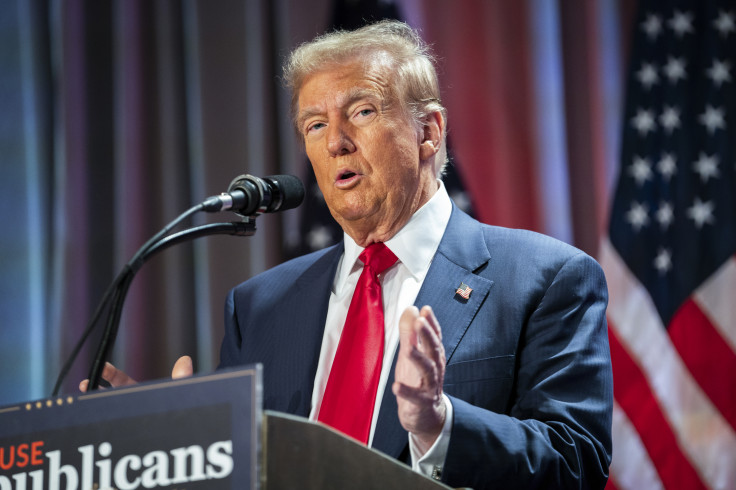
Donald Trump's tariff threats have rattled foreign businesses and governments, with many fearing it could signal the opening salvo of an all-out trade war when he returns to the White House next year.
The president-elect on Monday placed both allies and rivals on notice, vowing to quickly slap an across-the-board tariff of 25 percent on Canada and Mexico, and add a 10 percent tariff on China.
Following through on that threat -- or his campaign promise of a 10 percent levy on all US imports -- will spark retaliation and have ripple effects across the global economy, analysts say.
"Our assumption is that all these other countries, all these other advanced economies, especially in Asia, they will retaliate in kind," economist Bernard Yaros of Oxford Economics told AFP.
US tariffs and retaliation including from Europe and Asia would "depress growth" and trade flows, he said, estimating a cut to global growth of 0.1 to 0.9 percentage points in 2026.
Even before tariffs take effect, threats weigh on sentiment and could delay investments and hiring, ING economists Ruben Dewitte and Inga Fechner warned in a note.
Trump has long viewed tariffs as a negotiating tool -- or an "all-purpose bludgeon" as a recent Wall Street Journal editorial put it.
On Monday, Trump said that the tariffs on Mexico and Canada would only be removed when illegal immigration and drug trafficking to the United States are stopped.
While seeking to build US leverage, he also risks longer term impacts, with some suggesting he would push countries toward China, Columbia Law School professor Petros Mavroidis said.
"What he definitely does is alienate all his allies," he told AFP.
Erin Murphy, senior fellow at the Center for Strategic and International Studies, said in Trump's threats "there is no differentiation" regarding countries' economic development status or affinity with Washington.
Europe could be particularly impacted, Dewitte and Fechner said, warning that "a looming new trade war could push the eurozone economy from sluggish growth into recession."
EU tariffs on car imports were a particular target of Trump during his campaign.
But US reliance on the bloc for strategically important products, mainly in the chemical and pharmaceutical sectors, could give the EU some leverage in talks, ING said.
"European countries will be less likely to strike any kind of bargain with Trump than Canada or Mexico," said Peterson Institute for International Economics nonresident senior fellow Gary Hufbauer.
He expects the EU could offer to reduce auto tariffs and buy more US agricultural products like soybeans, but it may not be enough for an administration seeking greater market access or rules exemptions.
Should the US impose tariffs, the EU will probably retaliate on iconic US goods like iPhones or whiskey, he said.
European countries could turn to the World Trade Organization (WTO), though even favorable rulings from the international body may not significantly change US practices.
EU chief Ursula von der Leyen has said she will work towards "constructive cooperation" with US authorities.
Jovita Neliupsiene, the EU ambassador to the United States, meanwhile said the bloc is ready to respond to new trade frictions.
In Asia, economies like Japan and South Korea could be targeted over metals and auto exports, while Vietnam may also draw US scrutiny over solar panels, Yaros said.
The US trade deficit with Vietnam has widened in recent years on a surge in goods imports.
Yaros said that countries targeted by Trump's tariffs, in seeking to avoid escalation, will "retaliate in a way that's commensurate to the action done by the US, but no greater."
China, based on precedent, might eschew equal retaliation for tools like export controls, he added.
Daniel Russel of the Asia Society Policy Institute said both Tokyo and Seoul are very focused on preparing for potential tariffs.
He expects partners like South Korea could seek exemptions from blanket US tariffs, for example, by citing its high-tech investments in America.




